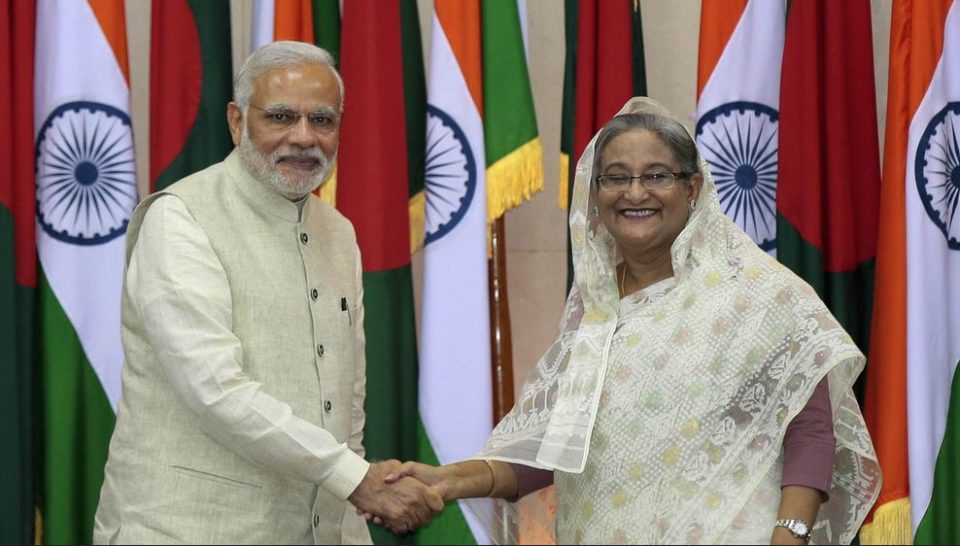New Delhi ,24 June :
The determination of India and Bangladesh to strengthen their connectivity, trade, and defense ties bodes well for stability in the Indian Ocean and broader Indo-Pacific regions. Prime Ministers Sheikh Hasina and Narendra Modi have persistently advanced the bilateral relations between Delhi and Dhaka over the last decade, turning the two nations into valuable partners. It is fitting that Delhi hosted Sheikh Hasina over the weekend for the first state visit by a foreign leader during PM Modi’s third term. Hasina’s presence in Delhi just two weeks prior for Modi’s swearing-in and their ten meetings over the past year highlight the depth of this engagement. The significant outcomes of their efforts to enhance ties have been celebrated as marking a “golden chapter” in the history of their bilateral relations. The “vision for a shared future” unveiled by the two leaders on Saturday aims to build on these achievements and transform the “extraordinary relationship” of the past decade into a “transformational partnership.”
The two countries have pledged to address the unfinished agenda of connectivity, including easing visa procedures, facilitating freer movement of goods, enhancing cross-border energy and electricity flows, and constructing digital bridges. Bangladesh has emerged as one of India’s most important trade partners. Delhi and Dhaka now plan to begin long-overdue negotiations on a comprehensive economic partnership agreement (CEPA). Establishing free trade across India’s longest border with the second-largest economy in the Subcontinent is a critical regional necessity amidst the disruption of the global trading order. As one of the world’s fastest-growing economies, Bangladesh is a natural partner for India in reshaping the South Asian regional economic order. The strengthening of the India-Bangladesh economic relationship provides a solid foundation not only for sub-regional integration of the eastern Subcontinent but also for the Bay of Bengal littoral and the eastern Indian Ocean.
Hasina and Modi have also expressed the ambition to modernize the bilateral defense relationship, which has lagged behind commerce and connectivity. This modernization would involve extensive collaboration between the armed forces of both countries, a defense industrial partnership, and Delhi’s support for the modernization of Dhaka’s armed forces. A robust bilateral defense partnership will contribute to maintaining stability in the wider Indo-Pacific region through cooperation on disaster mitigation and resilient infrastructure development. Expanding regional and international collaboration between Delhi and Dhaka will also help advance the collective interests of the Global South.
Over the past decade, the Indo-Bangla bilateral relationship has seen two strong leaders overcome the bitter legacies of Partition in the eastern subcontinent. While some issues, such as river water management, remain unresolved, the shared vision for the future articulated by Hasina and Modi offers hope for realizing the full potential of the bilateral relationship.
4o

